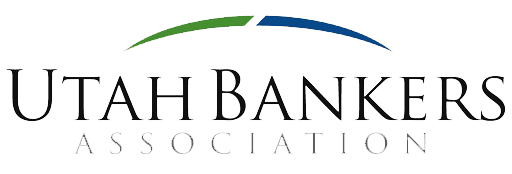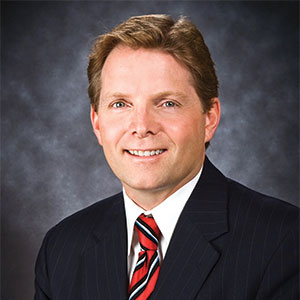I recently attended the American Bankers Association Annual Convention in Austin, Texas. It was an excellent event, loaded with critical information and insights on the latest issues. Scott Anderson delivered a stirring farewell as Chairman of the ABA, recognizing the exceptional leadership of ABA President Rob Nichols, the ABA’s leadership in assisting its member banks in becoming more diverse and inclusive, the commitment of bankers across the country in advocating for our industry, and the dedication of those same bankers to serving their communities. Scott’s enthusiasm energized the room. He repeated his pride in being a banker, and I was proud of how he represented the industry and, more specifically, bankers in Utah!
Scott’s presentation was followed immediately by FDIC Chairman Marty Gruenberg. Talk about a roller coaster ride. We all braced for his comments — after all, we have entered some challenging times. But no one in the room could have predicted what he said.
But before I get to that, let me restate my recent message: inflation is the sworn enemy of banking. Our mission is to help people save, protect, and build wealth. Inflation does the exact opposite; it destroys wealth and works against everything we are trying to accomplish for our customers.
The Fed understands the threat inflation poses to individuals and the economy, so it has taken an aggressive approach to increasing interest rates, inflicting short-term pain in hopes of minimizing the more damaging long-term impact of inflation. After an unprecedented period of historically low rates, such a rapid change in interest rates creates enormous challenges for customers and bankers alike. As I wrote previously, if those in charge of fiscal policy fail to exercise the same discipline, this could go on for a while.
Clearly, this is a significant economic moment for bankers, and their skills and wisdom will be seriously tested. Their ability to navigate these competing economic forces will impact every American and every community.
So, bankers gathered in Austin, fully expecting to hear some cautionary words and critical insights from Chairman Gruenberg of the FDIC — a man who has witnessed and weathered many economic storms. What we heard was flabbergasting.
He spent his entire presentation discussing, explaining, and rationalizing the FDIC’s obsession with climate change. Like every other federal agency, the FDIC appears consumed with the Biden administration’s directive on climate change. And without even a nod to the current economic challenges, the Chairman of the FDIC spent every minute in front of over 1,000 bankers lecturing them on a risk they have successfully managed for decades.
Don’t get me wrong; it would be fantastic if current economic challenges ended up being a small blip and bankers had the luxury of focusing all their time and attention on facilitating our customers’ smooth and seamless transition to more renewable sources of energy. But for now — right now — that feels like a dangerous miscalculation of the current risks.
We know how this plays out inside the beltway. Policymakers continue to ignore the obvious danger, pushing their preferred agenda until reality, and the American people, demand they reverse course. Then, they abruptly shift gears, blame everyone else — including the banks — and pretend their policy had no role in the outcome. It happened before with housing policy, and it’s happening now with climate.
However, I predict the outcome will be different this time, and here’s why: the public overwhelmingly trusts banks, especially their individual bankers. Satisfaction with banks has never been higher. The same cannot be said for Congress and executive branch agencies. And banks will continue to build this public trust by helping customers navigate the economic risks at hand. Eventually, people will realize this crisis was created by foolish policymakers so enamored with their political narratives that they lost sight of our economic reality.








